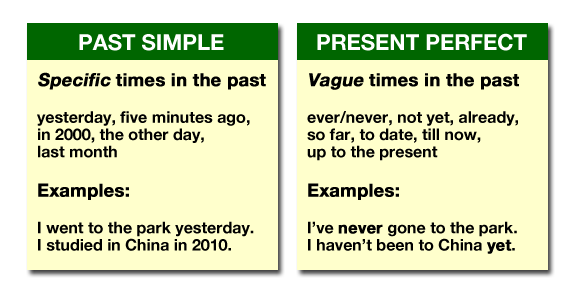Remember:
* HANG - Hang has two different meanings. The first is "to attach (or hang) something in a high position" (e.g. on the wall or on a hook). In this case we use the above verbs Hang-Hung-Hung.
BUT when Hang means "to kill someone by putting a rope around someone's neck and leaving them in a high position without any support", we use different verbs: Hang-Hanged-hanged. This verb is typical of public executions in the past. (e.g. They hanged him in the main square.)
** LIE - Lie has two meanings. When it means "to put your body in a horizontal position" (normally on a bed) it uses the Lie-Lay-Lain verbs.
BUT it is regular Lie-Lied-Lied when it has the other meaning of "not to say the truth".
*** READ - Even though they are written the same, the pronunciation is different in the Past Tense and Past Participle form.
The second form (burnt, dreamt etc.) is more common in British English.
This list is easy to remember:
Verbs that have the same form in Present, Past and Past Participle form:
| Verb | Past Simple | Past Participle |
|---|
| bet | bet | bet |
| broadcast | broadcast | broadcast |
| cut | cut | cut |
| hit | hit | hit |
| hurt | hurt | hurt |
| let | let | let |
| put | put | put |
| quit | quit | quit |
| read | read | read |
| set | set | set |
| shut | shut | shut |
| spread | spread | spread |
All of the verbs above are written and pronounced the same in the three forms EXCEPT for Read which is written the same but pronounced differently.
For further information click
here.




